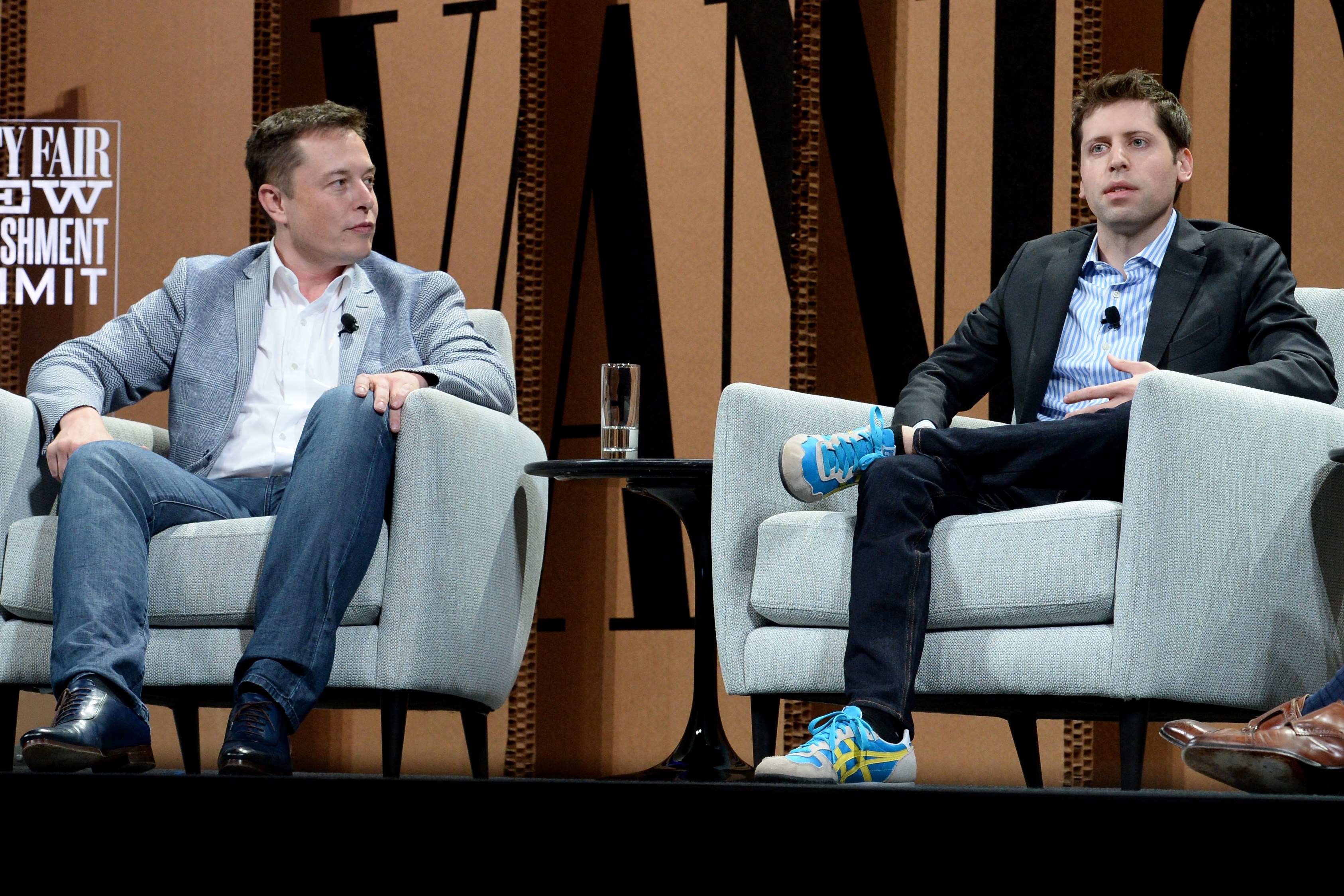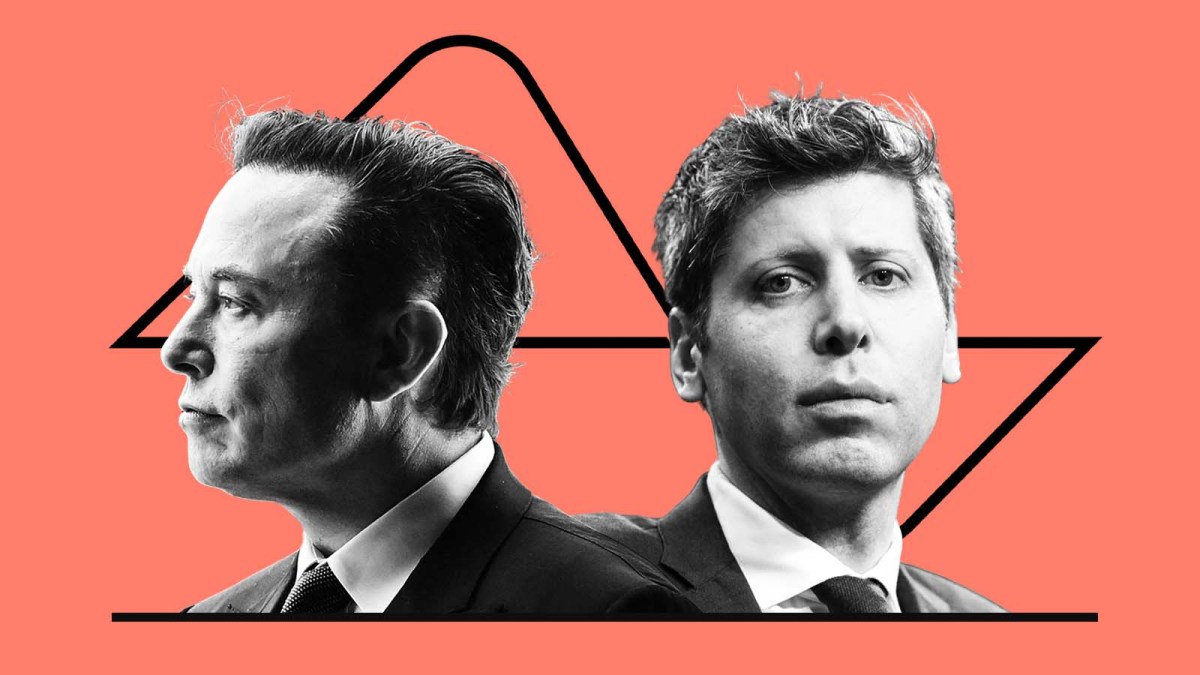The rivalry between two of the world’s most powerful technology billionaires is moving into a new arena — the race to link human minds directly with machines.
Sam Altman, chief executive of OpenAI, the company behind ChatGPT, was once an ally of Elon Musk, the Tesla and SpaceX boss. Now the former partners are preparing to face off in the fast-developing field of brain–computer interfaces (BCIs).
These systems typically use artificial intelligence to translate brain activity into commands a computer can follow. They have enabled people with paralysis to control devices using only their thoughts. Advocates believe BCIs will one day allow humans to merge with advanced AI.
Musk’s company, Neuralink, began testing its technology on patients in the US last year and recently gained approval for a trial in Britain, its first in Europe. Altman is now backing a rival, Merge Labs, which aims to harness recent advances in AI to make BCIs faster and more capable, according to the Financial Times.
In 2015 the pair launched OpenAI together when Musk provided much of the capital to launch the venture. They fell out three years later when Musk quit the board after disputes over how it would operate.
Since then, they have built competing AI empires while publicly trading barbs Musk attempted to block OpenAI’s transformation from a non-profit entity to a profit-seeking business.

Musk and Altman were on good terms when they founded OpenAI together in 2015
MICHAEL KOVAC/GETTY IMAGES
BCIs are drawing interest from governments as well as tech moguls. In the UK, the Advanced Research and Invention Agency (Aria), a government body, is exploring their potential as part of a broader mission to fund science that could change the world. In China, the Ministry of Industry and Information Technology has unveiled its own BCI device, Neo, intended to restore hand movement in paralysed patients.
Neuralink is widely seen as being at the forefront of the field. Its coin-sized implant is designed to sit inside a small opening in the skull, with flexible electrode “threads” extending into the brain to monitor the electrical activity of cells. An AI system then decodes those signals into information that can be used to control external devices. The company is also developing a surgical robot to carry out the procedure.
Last year it implanted a device in its first human volunteer, Noland Arbaugh, who was paralysed from the shoulders down in a diving accident. Using the implant, he was able to move a computer cursor and play video games, an experience he likened to “using the force” in a nod to Star Wars.
While striking, this was not the first demonstration of a mind-driven technology. In the early 2000s, American scientists showed that monkeys implanted with neural interfaces could control robotic limbs through their thoughts.
Human trials since then have allowed paralysed people to send emails, make purchases online and operate robotic devices — all without physical movement. In some cases, BCIs have been used to send information back towards the brain — allowing, for instance, a paralysed person to regain a sense of touch through a robotic hand.
Musk said he wanted to go much further, including restoring sight to the blind and enabling quadriplegics to regain “full-body functionality” — goals many researchers say could be decades away, if they are achievable at all. His ultimate ambition is a mass-market “general population device” linking human minds directly to powerful computers, allowing “symbiosis with artificial intelligence”. One industry figure who has discussed the matter with Musk said he viewed this as necessary to prevent superhuman AI from running out of control.
Altman seems to share a similar long-term vision. In a blog post this year he wrote that “high-bandwidth brain–computer interfaces” were on the horizon.
Neuralink, which was founded in 2016, recently raised $650 million in a deal that valued the company at $9 billion. Altman, who had previously invested in the company, now appears to be positioning Merge Labs to challenge it directly.
According to the Financial Times, Merge Labs is seeking funding at a valuation of about $850 million, with OpenAI’s ventures arm expected to provide a large portion of an initial $250 million round. Altman is expected to help launch the project alongside Alex Blania, who runs Worldcoin, an eyeball-scanning digital ID project also backed by the OpenAI chief
Neuralink said last month that it had received regulatory and ethics approvals to begin its first clinical study in the UK. The GB-Prime trial will be run at University College London Hospitals and Newcastle upon Tyne Hospitals NHS Foundation Trust. It will test the company’s BCI in people with severe paralysis. The trial will involve patients with conditions such as motor neurone disease, spinal cord injuries and other neurological disorders, assessing whether they can use the device to control computers and other digital systems by thought alone.
